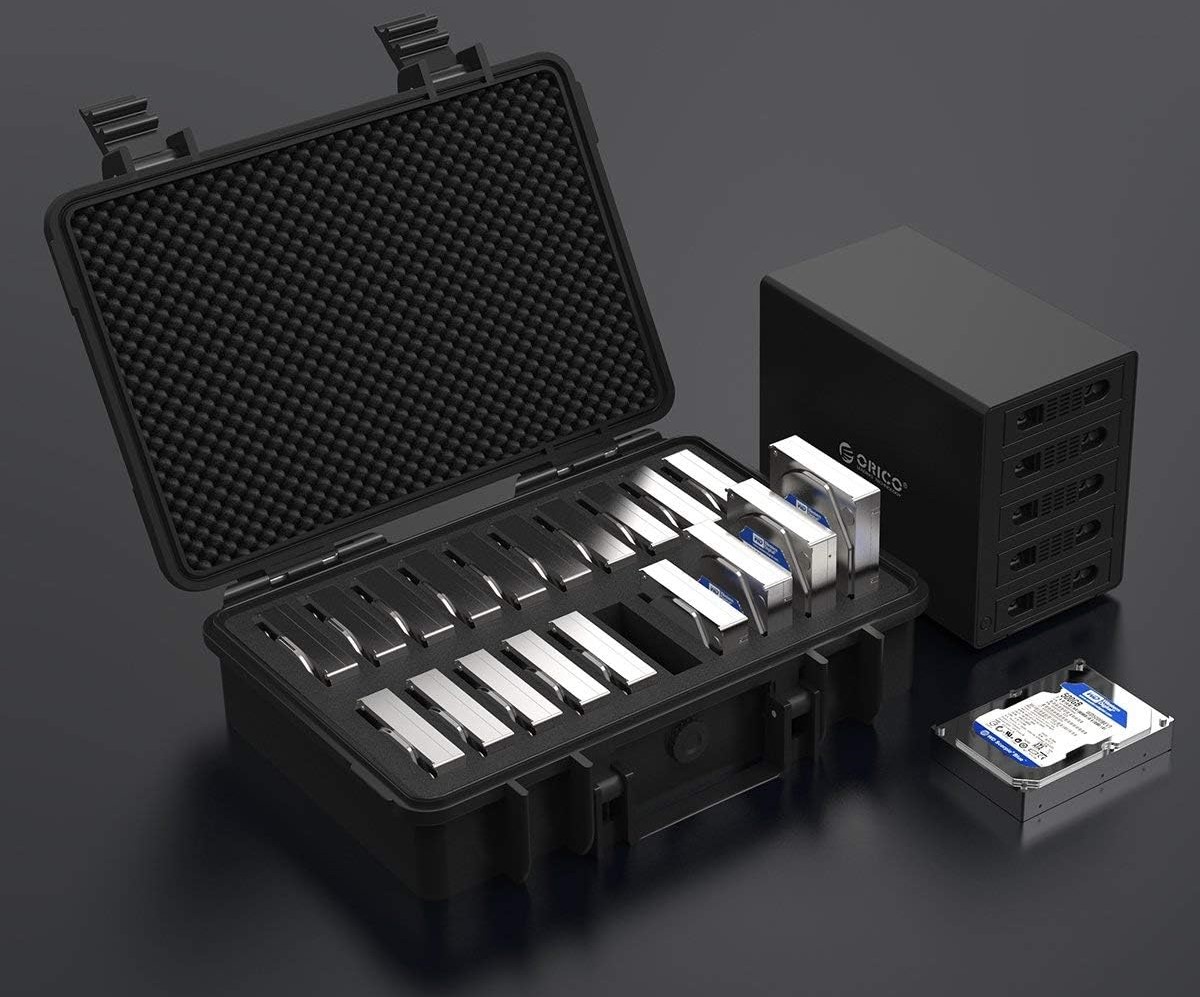

Articles
How To Store External Hard Drives
Modified: December 7, 2023
Learn the best methods for storing and preserving your external hard drives with our informative articles. Safeguard your data and prolong the life of your devices.
(Many of the links in this article redirect to a specific reviewed product. Your purchase of these products through affiliate links helps to generate commission for Storables.com, at no extra cost. Learn more)
Introduction
External hard drives have become an essential tool for storing and backup data for individuals and businesses alike. They offer a convenient and portable solution for safely storing large amounts of data. However, when it comes to maintaining the longevity of these devices, proper storage is crucial.
Proper storage not only ensures the safety of your external hard drives but also helps in preserving the data stored on them. In this article, we will discuss the importance of storing external hard drives correctly and provide you with some valuable tips on how to store them effectively.
Whether you are an avid photographer, a video editor, or simply someone who wants to keep their digital files secure, understanding the best practices for storing external hard drives is essential. By taking the necessary precautions, you can prevent data loss, physical damage, and ensure the longevity of your valuable storage devices.
Key Takeaways:
- Proper storage of external hard drives is crucial for protecting them from physical damage, data corruption, and theft. Choosing the right storage location and container, along with regular maintenance, ensures the longevity of your valuable data and storage devices.
- Prioritize factors such as temperature control, physical protection, and security when selecting a storage location for your external hard drives. Utilize suitable storage containers and implement proper maintenance practices to safeguard your data and ensure the longevity of your drives.
Read more: How To Store Movies On External Hard Drive
Importance of Proper Storage for External Hard Drives
Proper storage of external hard drives is vital for several reasons. By ensuring that your external hard drives are stored correctly, you can protect them from physical damage, data corruption, and extend their lifespan. Here are some key reasons why proper storage is important:
- Protection from Physical Damage: External hard drives are delicate electronic devices that can be easily damaged if mishandled or stored improperly. They are susceptible to impact, moisture, temperature changes, and dust. By storing them in a safe and secure location, you can minimize the risk of accidental damage.
- Prevention of Data Corruption: External hard drives store valuable data, including important files, documents, photos, and videos. Improper storage can lead to data corruption, which can result in the loss or inaccessibility of your files. By storing your drives correctly, you can reduce the chances of data corruption and ensure the integrity of your stored data.
- Extended Lifespan: Storing external hard drives properly can help prolong their lifespan. Excessive heat, humidity, and exposure to sunlight can degrade the internal components of the drive over time. By choosing the right storage environment, you can prevent premature failure and ensure that your drives last longer.
- Easy Accessibility: Properly organizing and storing your external hard drives makes it easier to access the data when you need it. By utilizing a system for labeling and categorizing your drives, you can quickly locate specific files or retrieve backup data in case of emergencies.
- Protection from Theft or Loss: External hard drives are valuable and portable, making them a target for theft or loss. By storing your drives in a secure place, such as a locked drawer, safe, or a hidden location, you can minimize the risk of losing your valuable data to theft or misplacement.
In summary, proper storage for external hard drives is crucial for protecting them from physical damage, preventing data corruption, extending their lifespan, ensuring easy accessibility, and safeguarding against theft or loss. Implementing the right storage practices will not only preserve your drives but also safeguard the valuable data they contain.
Factors to Consider Before Choosing a Storage Location
When it comes to choosing a storage location for your external hard drives, several factors should be taken into consideration. The right storage location can make a significant difference in the safety and longevity of your drives. Here are some important factors to consider before selecting a storage location:
- Temperature and Humidity: External hard drives are sensitive to temperature and humidity fluctuations. High temperatures can cause the internal components to overheat, while excessive humidity can lead to condensation and water damage. It is important to choose a storage location with a stable temperature and humidity level to prevent damage to your drives.
- Protection from Physical Hazards: Your storage location should offer protection from physical hazards such as impact, vibrations, and dust. Avoid storing your drives in areas prone to accidents or where they may be at risk of falling or being knocked over. Dust can also accumulate on the drives and affect their performance, so choose a location where dust exposure is minimized.
- Security: Consider the security of your storage location. If your external hard drives contain sensitive or confidential data, it is essential to store them in a secure area that is not easily accessible to unauthorized individuals. Choose a location that is locked, such as a safe, drawer, or cabinet, to protect your drives from theft or unauthorized access.
- Away from Magnetic Fields: Magnetic fields can interfere with the data stored on your external hard drives. Avoid storing your drives near sources of magnetic fields, such as speakers, motors, or strong magnets, as it can lead to data corruption or loss. Keep your drives in a location where they are isolated from magnetic interference.
- Accessibility: Consider how easily accessible your storage location is. While security is important, you should also be able to access your drives conveniently when you need them. Ensure that your chosen storage location is easily reachable, especially if you frequently use or update the data stored on the drives.
- Backup and Redundancy: It is advisable to have multiple backup copies of your data to safeguard against any unforeseen events. Consider storing one set of external hard drives in an off-site location, such as a trusted friend’s house or a safe deposit box, to provide additional protection and redundancy.
By considering these factors, you can choose a storage location that provides optimal conditions for your external hard drives, ensuring their safety, longevity, security, and accessibility. Remember, investing time and effort into selecting the right storage location will go a long way in protecting your valuable data and storage devices.
Suitable Storage Containers for External Hard Drives
Choosing the right storage container for your external hard drives is essential to protect them from physical damage and provide an additional layer of safety. Here are some suitable storage container options to consider:
- Hard-shell Cases: Hard-shell cases are a popular choice for storing external hard drives. These cases provide a sturdy and protective layer around your drives. They are usually made of durable materials such as plastic or aluminum and have foam inserts or dividers to prevent the drives from moving around during transportation. Hard-shell cases are ideal for those who need to frequently transport their external hard drives.
- Anti-Static Bags: Anti-static bags are designed to protect electronic devices from static electricity. These bags are made of a special material that helps to dissipate any static charges and prevent damage to sensitive components. They are a cost-effective solution for storing external hard drives when they are not in use. Make sure to choose anti-static bags that are large enough to accommodate your drives and ensure a proper fit.
- Storage Boxes: Storage boxes are a versatile and affordable option for storing external hard drives. These boxes are typically made of durable materials such as plastic or metal and come in various sizes. Look for storage boxes with padding or foam inserts to provide cushioning and protection for your drives. Labeling the boxes and organizing them can also help in quickly locating specific drives when needed.
- Data Storage Racks: Data storage racks are specially designed to hold external hard drives in an organized manner. These racks often feature individual slots or compartments that can accommodate multiple drives. They provide a convenient and space-saving solution, particularly for those with a large collection of external hard drives. Data storage racks can be placed on a desk, shelf, or mounted to a wall for easy access.
- Climate-Controlled Storage Cabinets: If you require advanced protection for your external hard drives, climate-controlled storage cabinets are worth considering. These cabinets are equipped with environmental control features such as temperature and humidity regulation. They provide a controlled storage environment that minimizes the risk of physical damage caused by extreme temperature fluctuations or humidity levels.
When choosing a storage container, make sure it is the right size to accommodate your external hard drives without causing any strain or compression. It is also beneficial to choose containers with additional features like water resistance or lockable options for added security.
Remember to keep your storage containers in a safe location, adhering to the factors mentioned earlier, to ensure the overall protection of your external hard drives. With the right storage container, you can keep your drives secure, organized, and well-protected from potential hazards.
When storing external hard drives, it’s important to keep them in a cool, dry place to prevent damage from moisture and heat. Additionally, it’s a good idea to store them in a protective case or sleeve to prevent physical damage.
Tips for Properly Storing External Hard Drives
Properly storing your external hard drives is essential to maintain their functionality and protect your valuable data. To ensure the longevity of your drives and safeguard against potential issues, consider the following tips:
- Backup Your Data: Before storing your external hard drives, it is crucial to create backups of all the data stored on them. This ensures that your information is protected even if something happens to the drives while in storage. Make sure to keep at least one copy of your data in a separate location as an additional precaution.
- Choose a Cool, Dry, and Dust-Free Environment: Select a storage location with a cool and dry environment to prevent damage caused by heat, humidity, or condensation. Avoid areas prone to dust accumulation, as dust can impact the performance of your drives. Consider using a dehumidifier or silica gel packets to maintain optimal humidity levels in the storage area.
- Avoid Extreme Temperatures: Extreme temperatures can affect the performance and lifespan of your external hard drives. Store them away from direct sunlight, heaters, or any other heat sources. Additionally, avoid storing your drives in freezing temperatures, as it can damage the internal components.
- Keep Drives Upright: When storing the external hard drives, position them upright to minimize the risk of damage to the internal moving parts. Lay the drives flat only when they have been designed specifically to be stored that way.
- Protection from Physical Impact: Avoid placing heavy objects on top of your stored external hard drives, as it can lead to damage or data loss. Store them in a location where they won’t be prone to accidental bumps, drops, or falls. Consider using padding or foam inserts within storage containers to provide an extra layer of cushioning.
- Regularly Use Your Drives: Regularly accessing and using your external hard drives helps prevent the internal components from becoming stagnant and ensures their proper functioning. Even if it’s just connecting and powering on the drives periodically, it can help maintain their performance and longevity.
- Label and Organize: Properly label your external hard drives and keep an inventory of the data stored on each drive. This makes it easier to locate specific files or backup data when needed. Organizing your drives in a systematic manner within storage containers or racks helps save time and prevents accidental misplacement or confusion.
- Check and Update Firmware: Firmware updates released by manufacturers can enhance the performance and security of your external hard drives. Periodically check for firmware updates and apply them as recommended to ensure your drives are up to date.
By following these tips, you can effectively store your external hard drives, protecting them from physical damage, data loss, and other potential issues. Remember that proper storage practices combined with regular backup routines are crucial for maintaining the integrity of your data and the longevity of your valuable storage devices.
Maintaining External Hard Drives in Storage
Properly maintaining your external hard drives while in storage is essential for ensuring their longevity and the safety of your data. Here are some tips to help you maintain your drives while they are not in use:
- Regular Inspection: Periodically inspect your external hard drives for any signs of physical damage, such as cracks, dents, or loose connections. If you notice any issues, take the necessary steps to address them before storing the drives. This helps to prevent further damage while they are in storage.
- Keep Away from Liquids and Chemicals: Liquids and chemicals can cause irreparable damage to your external hard drives. Ensure that your storage location is free of any potential sources of liquid spills, such as water pipes, drinks, or cleaning solutions. Store your drives in an area that is away from any potential contact with liquid or chemical substances.
- Avoid Power Surges: Power surges can damage the electronic components of your external hard drives. Keep your drives unplugged from power sources while in storage to prevent possible damage caused by electrical fluctuations. Consider using surge protectors or uninterrupted power supply (UPS) devices to protect your drives during usage.
- Regular Power-On and Data Integrity Checks: It is beneficial to periodically power on your external hard drives and check the integrity of the stored data. By doing so, you can identify any data corruption or errors early on and take the necessary actions to rectify them.
- Update Anti-virus Software: Ensure that your anti-virus software is up to date before connecting your external hard drives to any device. This helps protect your drives from potential malware or viruses that can corrupt your data during usage.
- Avoid Extreme Handling: When moving or handling your external hard drives, ensure that you do so with care. Avoid any sudden or rough movements that can cause damage to the drives or the internal components. Always use two hands when handling the drives to provide better support and stability.
- Periodically Rotate Stored Drives: If you have multiple external hard drives in storage, consider periodically rotating them. This helps distribute the wear and tear across different drives and prevents any single drive from being idle for an extended period of time.
- Regularly Update Backup Copies: If you have backup copies of your data stored elsewhere, make sure to update them regularly. This ensures that you have the most recent version of your files in case you need to access them or recover data from your external hard drives.
By following these maintenance tips, you can minimize the risk of damage, data loss, or performance issues while your external hard drives are in storage. Remember, proper storage and regular maintenance practices are essential for protecting your valuable data and ensuring the longevity of your external hard drives.
Conclusion
Properly storing external hard drives is crucial for maintaining their functionality, protecting your valuable data, and ensuring their longevity. By following the tips and considerations outlined in this article, you can create an optimal storage environment and reduce the risk of physical damage, data corruption, and other potential issues.
When choosing a storage location, prioritize factors such as temperature and humidity control, protection from physical hazards, security, and accessibility. Consider using suitable storage containers such as hard-shell cases, anti-static bags, storage boxes, data storage racks, or climate-controlled storage cabinets to provide an added layer of protection.
Additionally, implement proper maintenance practices, including regular inspection, avoiding liquids and power surges, updating anti-virus software, and periodically powering on and checking the integrity of your stored data. It is also important to regularly update your backup copies and rotate stored drives if you have multiple devices.
Remember that investing time and effort into proper storage and maintenance practices can safeguard your external hard drives and the valuable data they contain. By following these guidelines, you can ensure a longer lifespan for your drives, maintain the integrity of your data, and have peace of mind knowing that your storage devices are stored securely.
So, take the necessary precautions and give your external hard drives the care they deserve. By doing so, you can enjoy the convenience and peace of mind that comes with a well-maintained and properly stored storage solution.
Frequently Asked Questions about How To Store External Hard Drives
Was this page helpful?
At Storables.com, we guarantee accurate and reliable information. Our content, validated by Expert Board Contributors, is crafted following stringent Editorial Policies. We're committed to providing you with well-researched, expert-backed insights for all your informational needs.
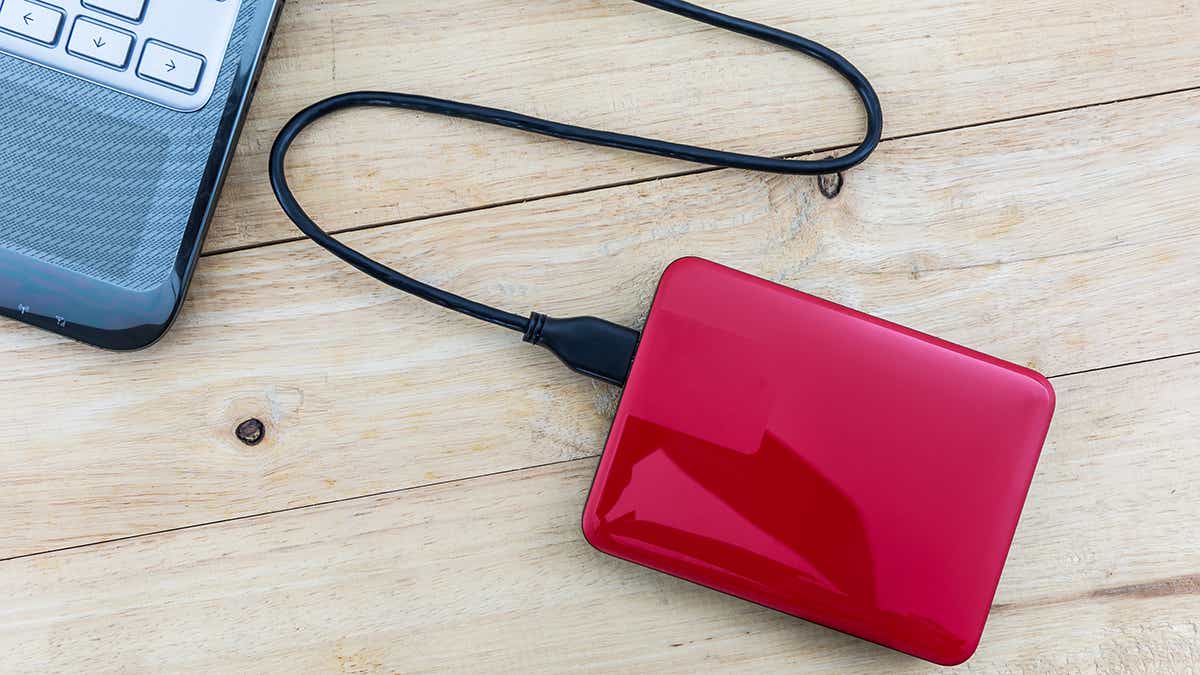
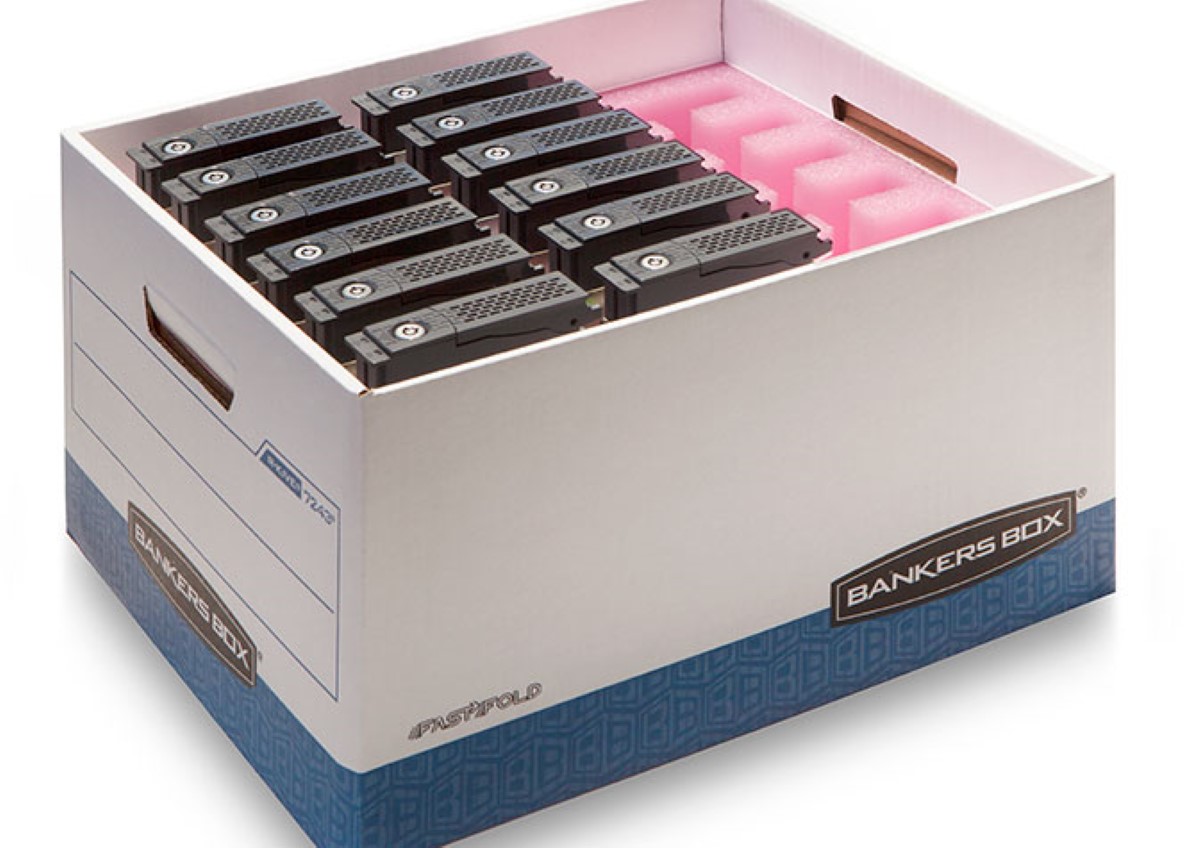
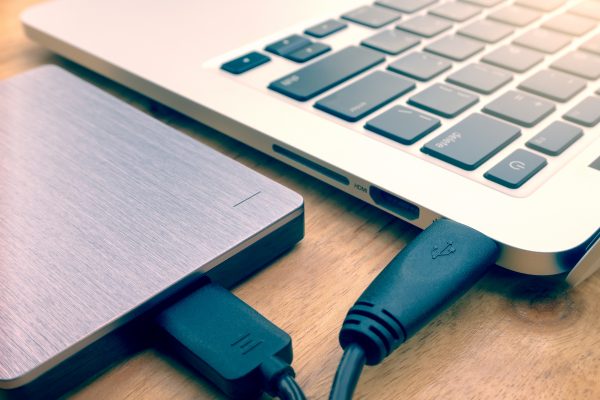
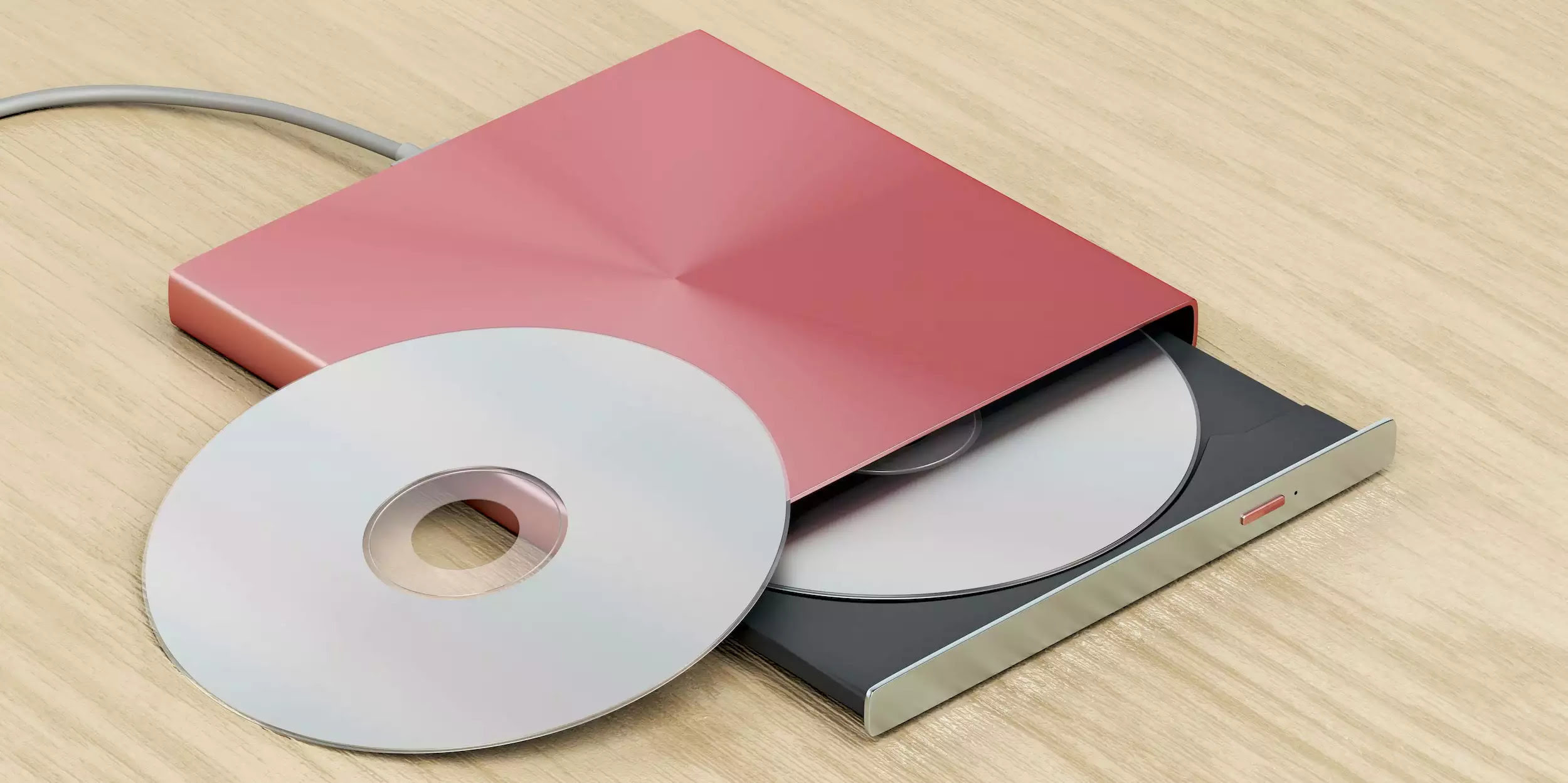
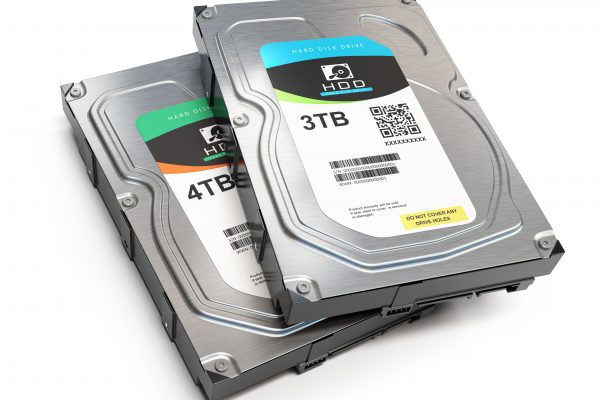
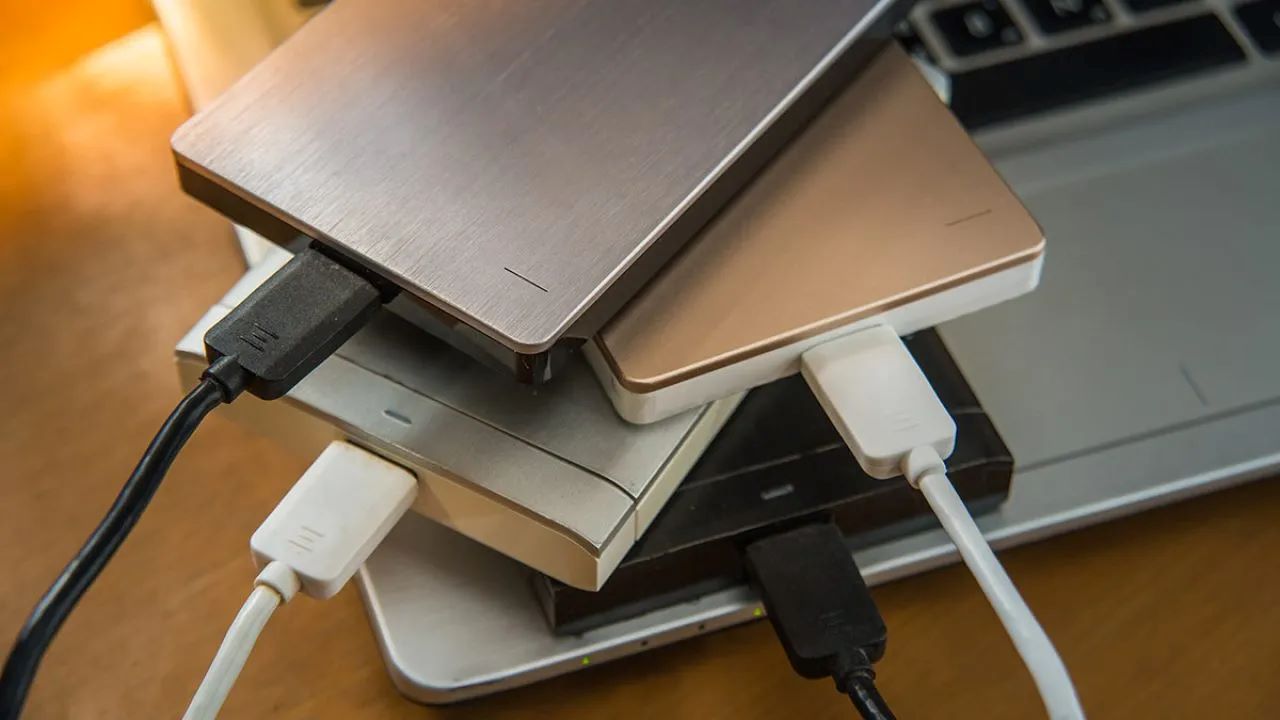
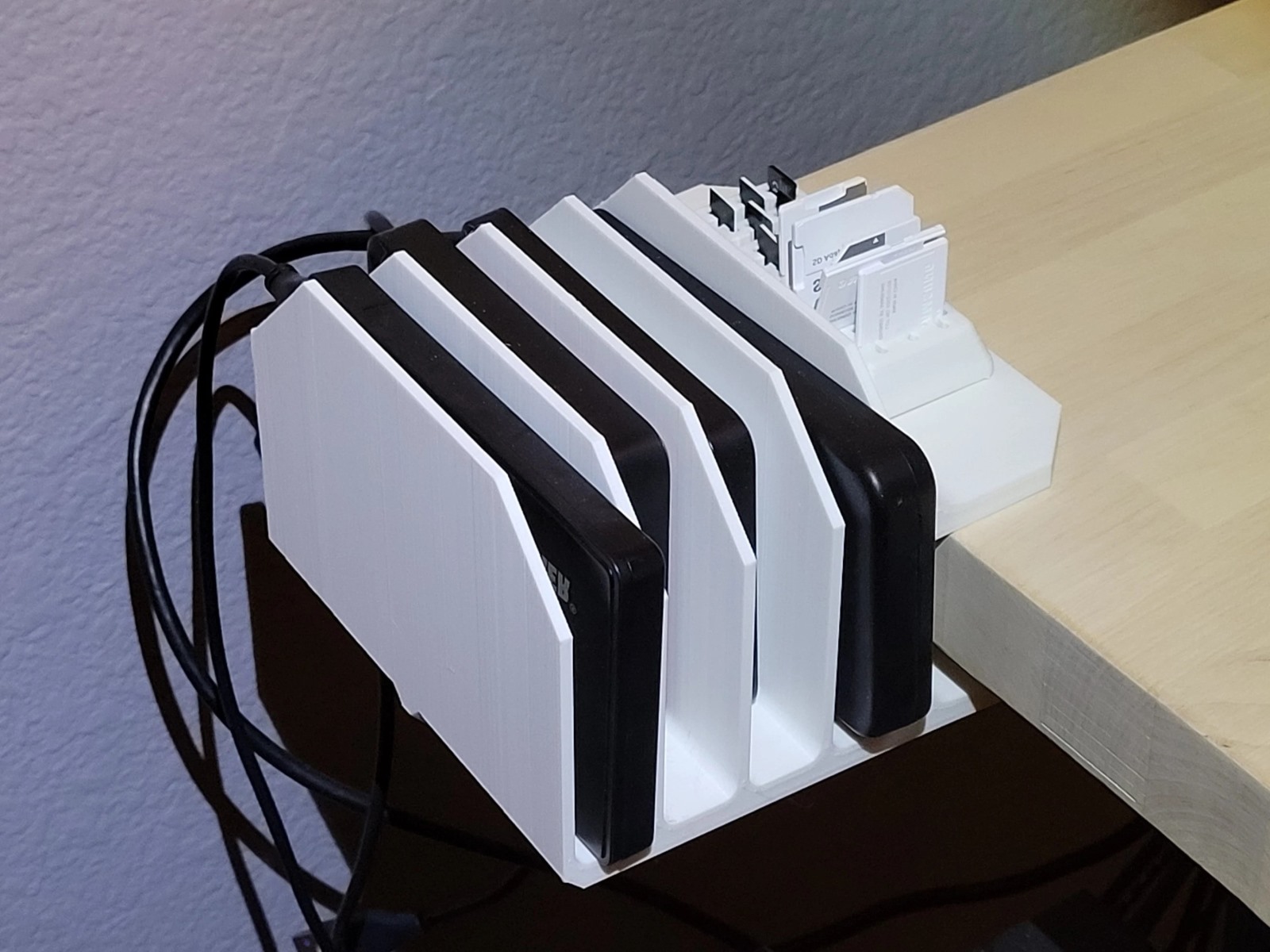
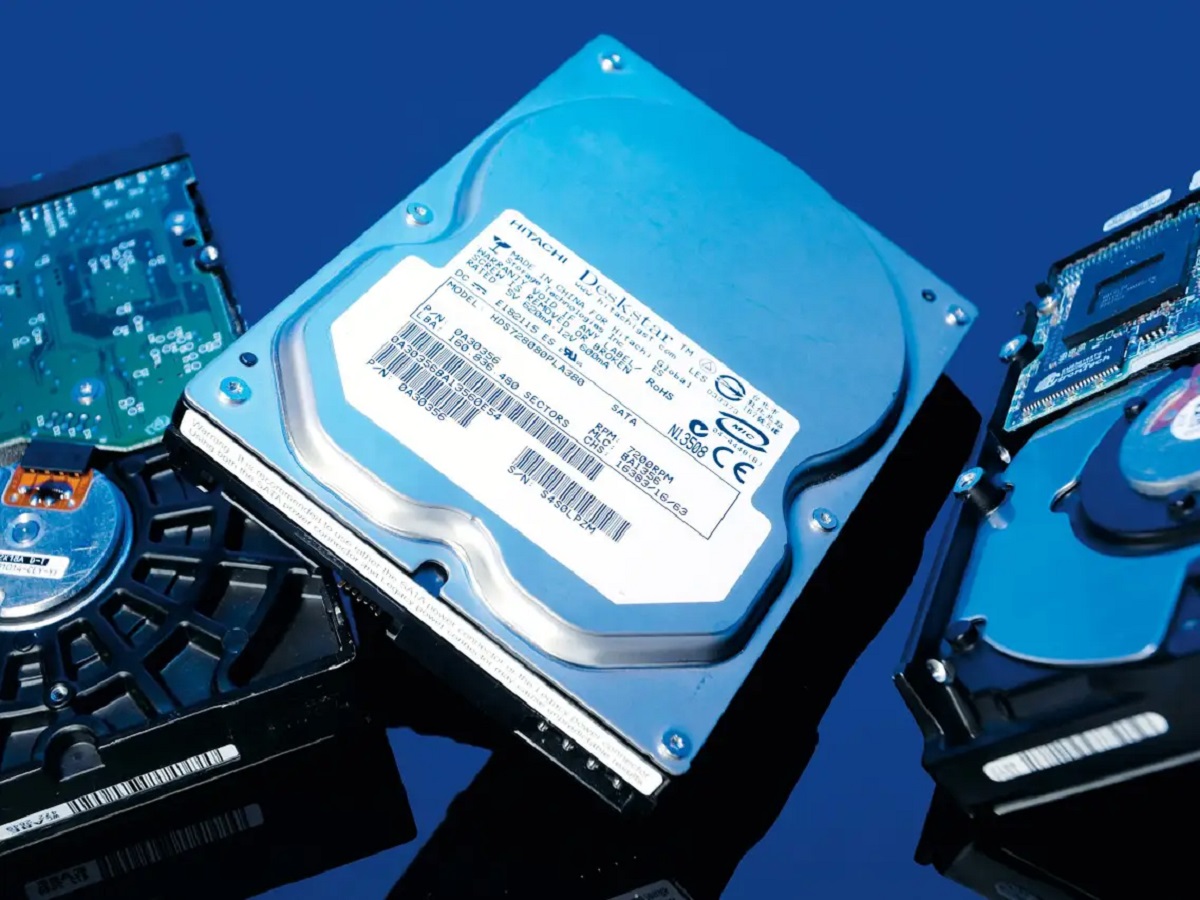
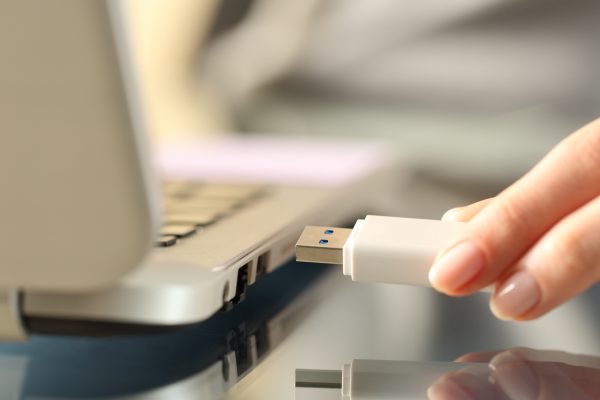
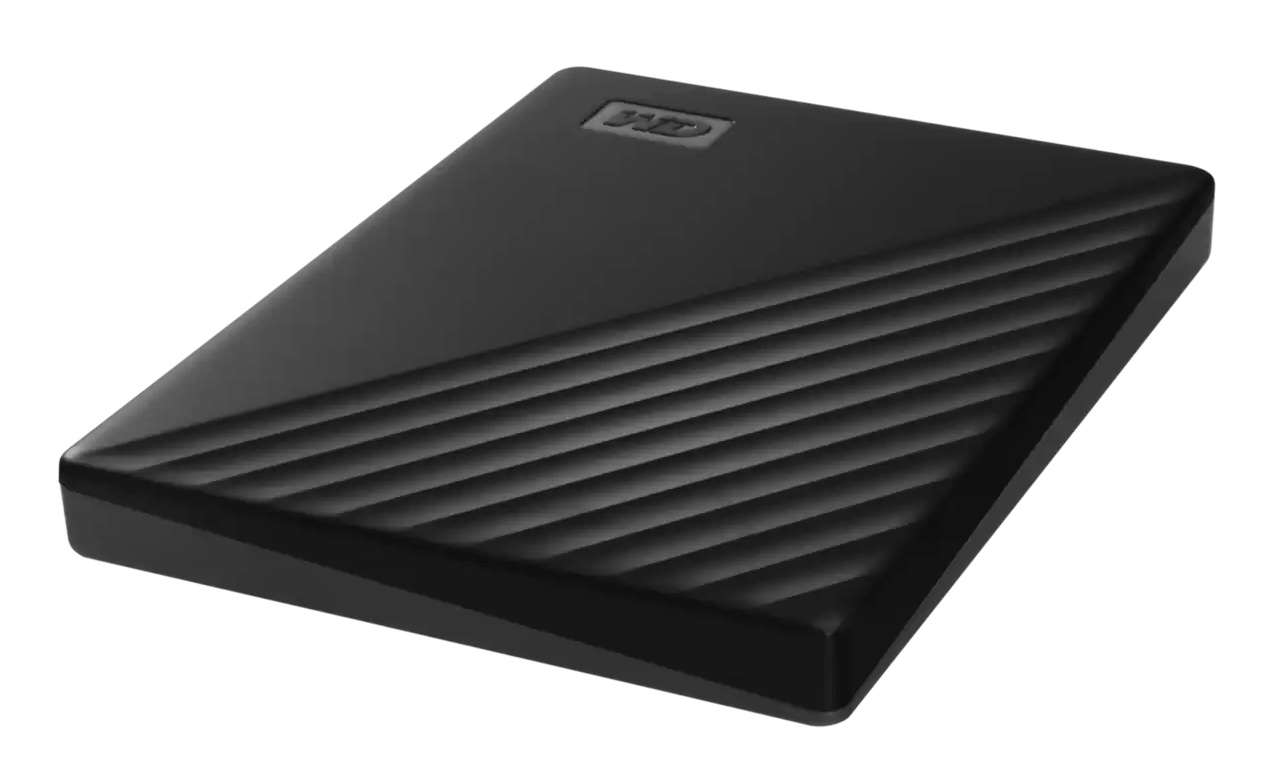
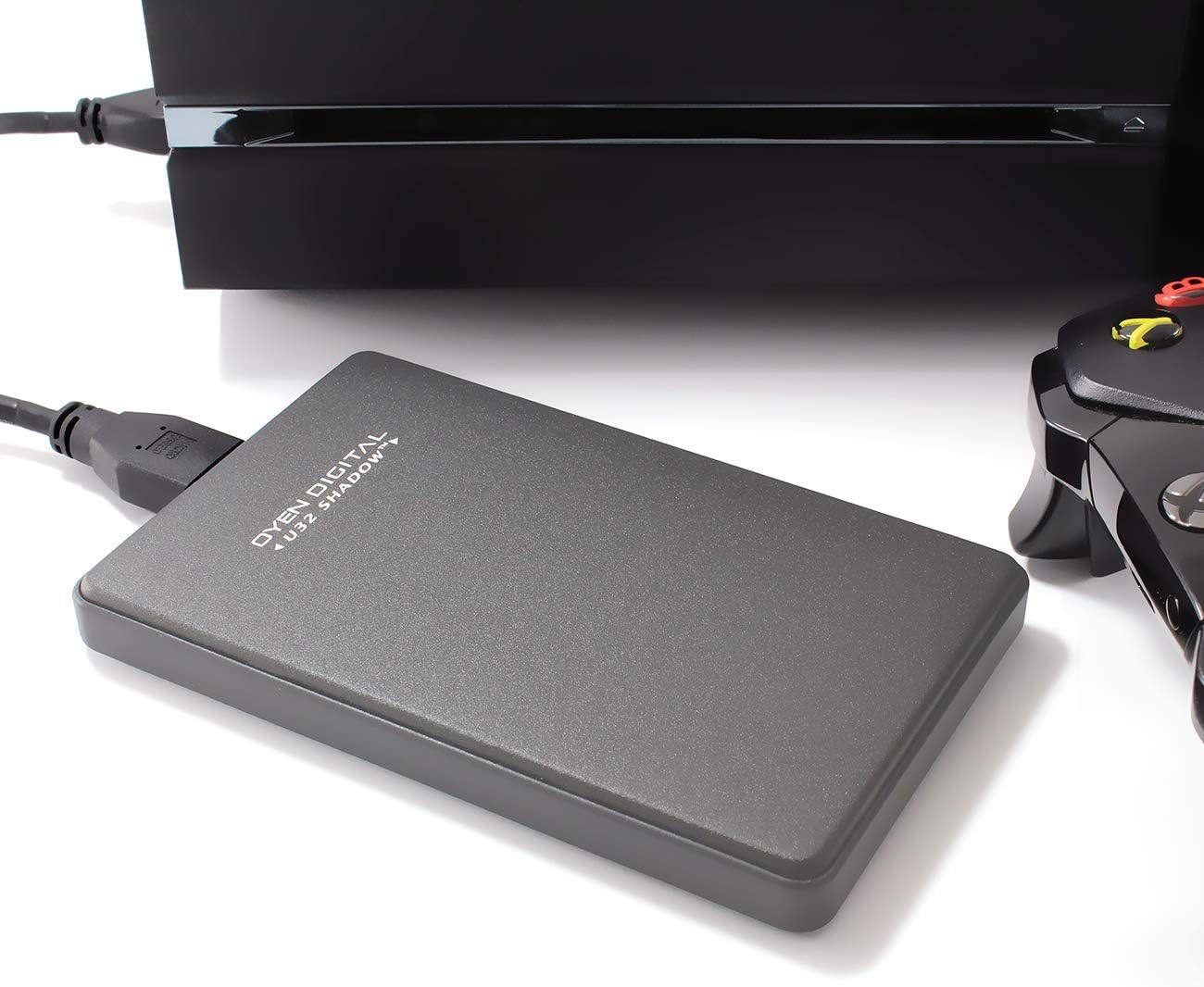

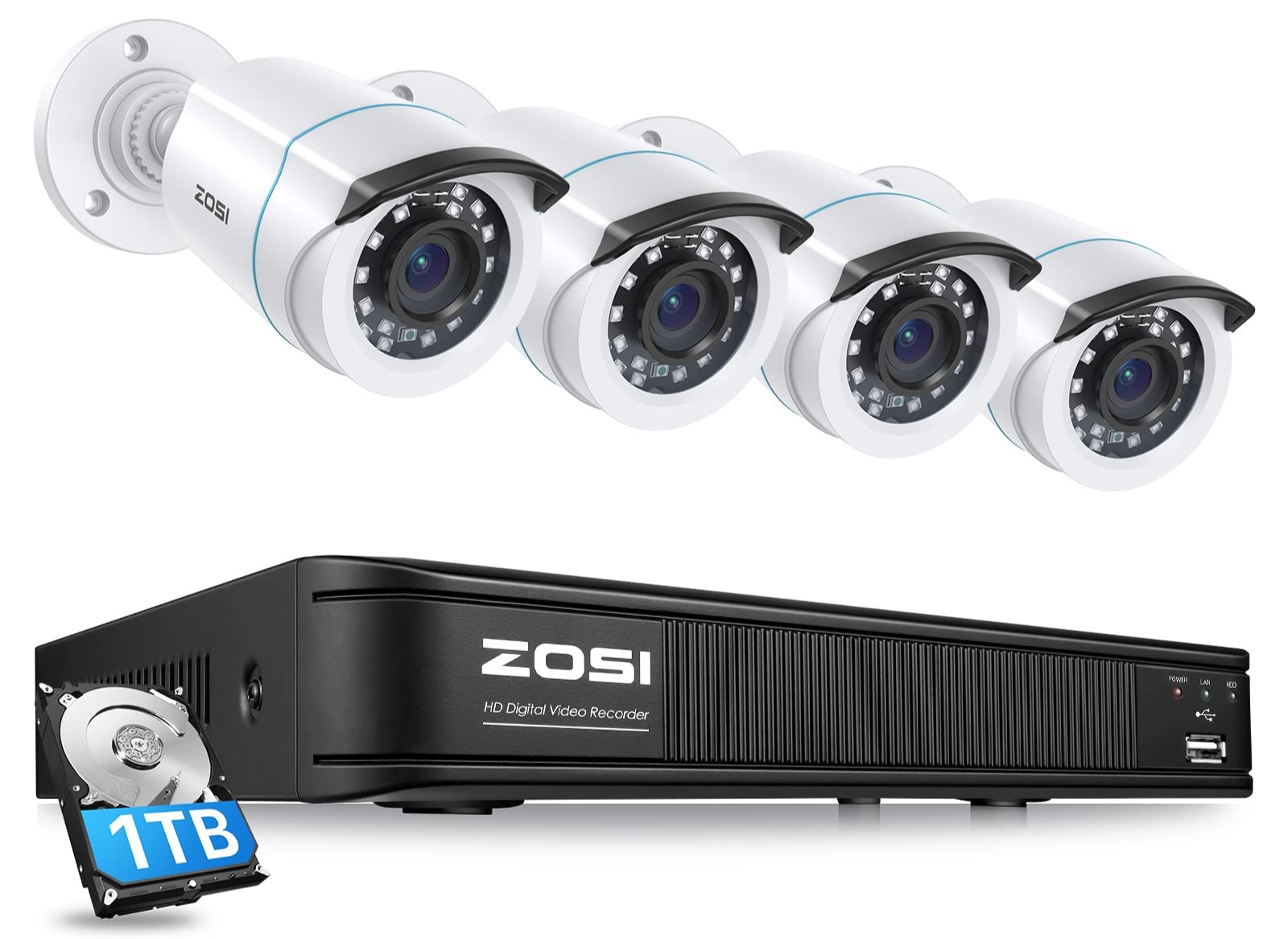
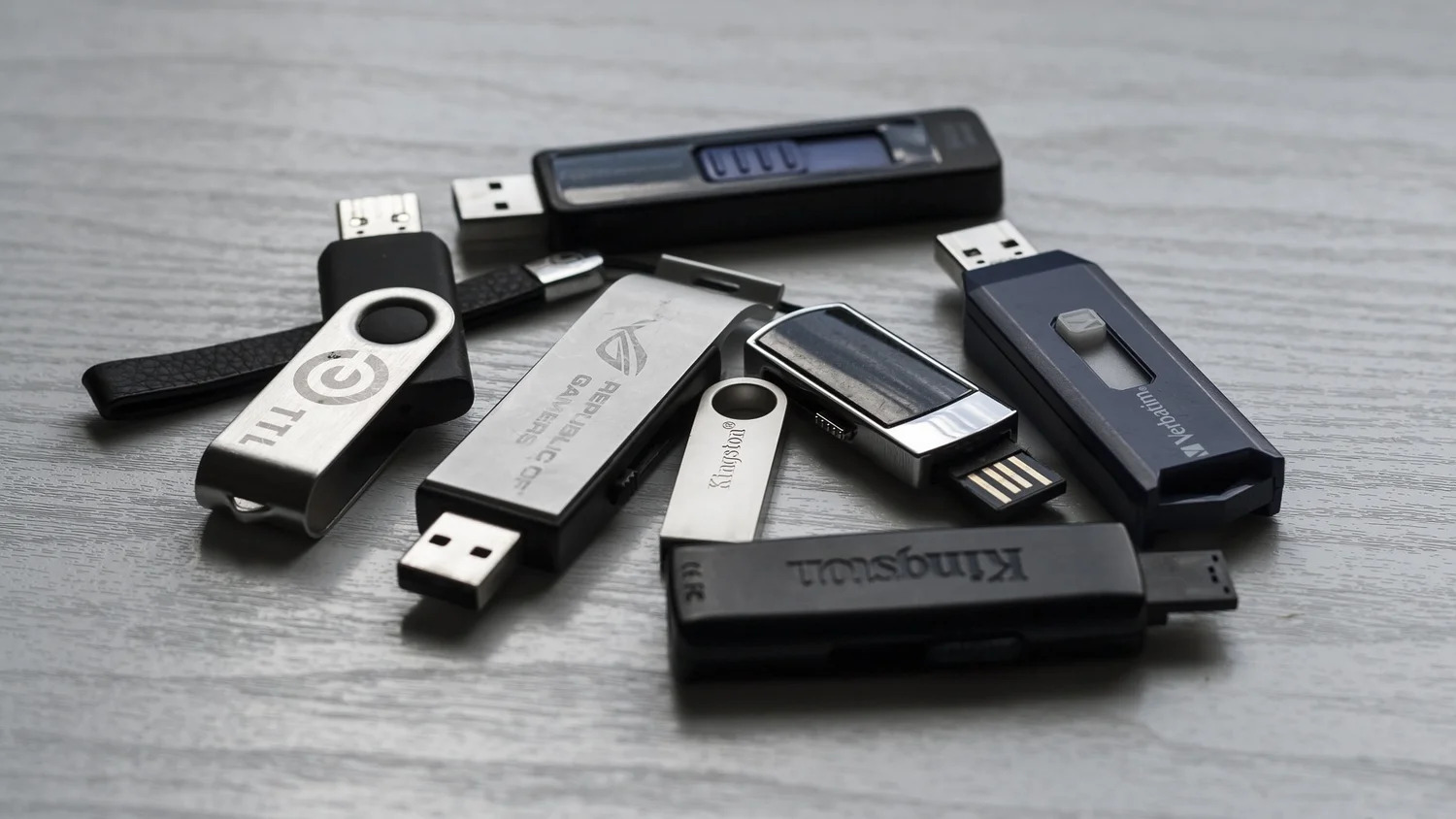

0 thoughts on “How To Store External Hard Drives”